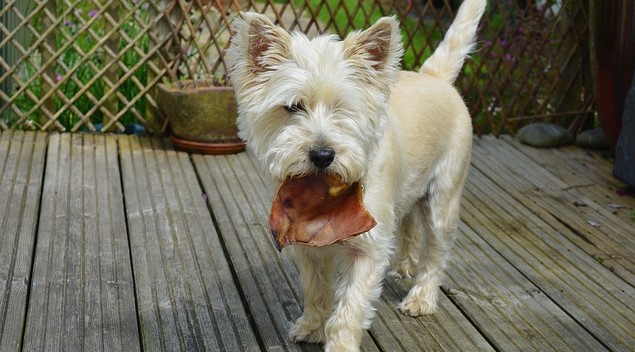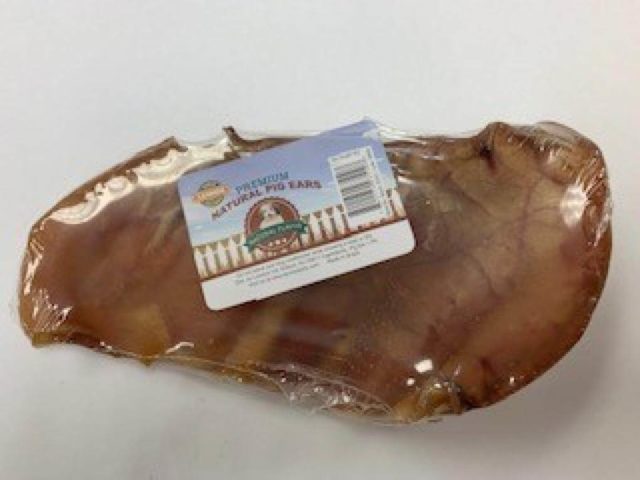UPDATE: As of July 31, 2019 the FDA is now warning consumers to avoid buying or feeding ALL pig ears pet treats. In recent weeks, we’ve seen numerous recalls and warnings; however, this most recent warning is not specific to one brand or location. All pig ears should be avoided, discarded and destroyed.
The Centers for Disease Control and Prevention (CDC) and the FDA are investigating a suspected link between pig ear pet treats and human cases of salmonellosis.
As of July 31, 2019, the CDC reports that 127 cases of human infection tied to exposure to pig ear pet treats with Salmonella. Although there have been no reported deaths, twenty-six people have been hospitalized.
According to the report, “The FDA has traced back some of the pig ear treats associated with cases of illness to sources in Argentina and Brazil.”
Please share this with all dog lovers to avoid any potential risk of exposure.
The original warnings and recalls can be found below.
Pig Ears: Potential Dangers to Humans and Dogs
On July 26, 2019 Lennox International, Inc., issued a voluntary recall of their Natural Pig Ears for dogs because they may be contaminated with Salmonella.
To date, the company is aware of two dogs that have become ill. The affected batches were shipped nationwide between May 1 and July 3, 2019.
According to Dog Food Advisor, “these cases may be related to the ongoing FDA investigation of Salmonella illness associated with what appears to be a multiple source.” However, they did not comment on whether this case is related to the recent string of drug-resistant Salmonella cases identified in humans in 33 states.

What’s Recalled?
The affected pig ears are supplied in an 8-pack branded pouch under UPC 742174 995163 and 742174994166.
They are also available in an individually shrink-wrapped package under UPC 0385384810 and 742174P35107.
All UPC codes are located on the front label of the package.
The following low resolution product image was provided by Lennox International along with the recall announcement:

About Salmonella
Salmonella is a harmful bacteria that can cause illness in people and pets. Symptoms include: nausea, vomiting, diarrhea or bloody diarrhea, abdominal cramping and fever.
In rare cases, more serious ailments such as arterial infections, endocarditis, arthritis, muscle pain, eye irritation, and urinary tract symptoms may occur.
The CDC recommends the following precautions to protect yourself against Salmonella infection:
While Feeding Your Dog
- Always wash your hands thoroughly with soap and water right after handling pet food or treats, including pig ears.
- When possible, store pet food and treats away from where human food is stored or prepared and away from the reach of young children.
- Don’t use your pet’s feeding bowl to scoop food. Use a clean, dedicated scoop, spoon, or cup.
- Always follow any storage instructions on pet food bags or containers.
Play Safely
- Don’t let your pet lick your mouth or face after it eats pet food or treats.
- Don’t let your pet lick any open wounds or areas with broken skin.
- If you do play with your pet after it has just eaten, wash your hands and any part of your body it licked with soap and water.
Shop Safely
- Always wash your hands thoroughly with soap and water after touching unpackaged pet treats, such as food or treats in bulk bins.

What Should You Do If You Have Affected Products?
If you have purchased Lennox International Natural Pig Ears with the above UPC codes, discontinue giving them to your dog immediately. If you or your dog have symptoms of illness, seek medical attention.
Consumers with proper receipt may return the products to the retailer they purchased them from. Or they may contact the company at 800-538-8980, Monday to Friday, 9 to 5 pm, for a refund or additional information.
Consumers may also email the company at usaoffice@lennoxpets.com.
U.S. citizens can report complaints about FDA-regulated pet food products by calling the consumer complaint coordinator in your area.
Or go to https://www.fda.gov/petfoodcomplaints.
Canadians can report any health or safety incidents related to the use of this product by filling out the Consumer Product Incident Report Form.
 Toledo, United States.
Toledo, United States.
